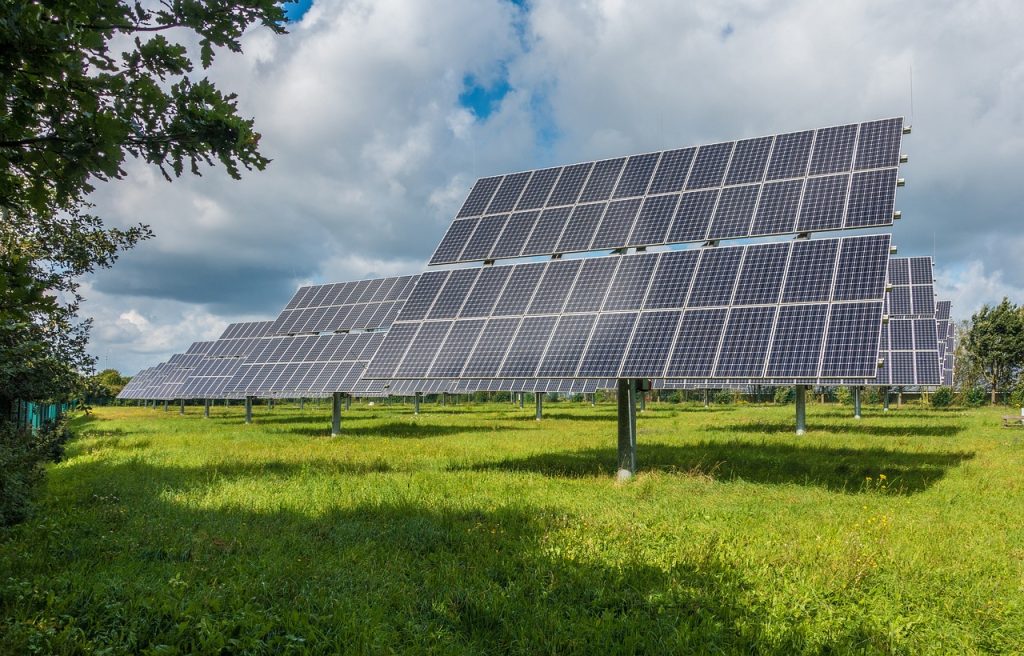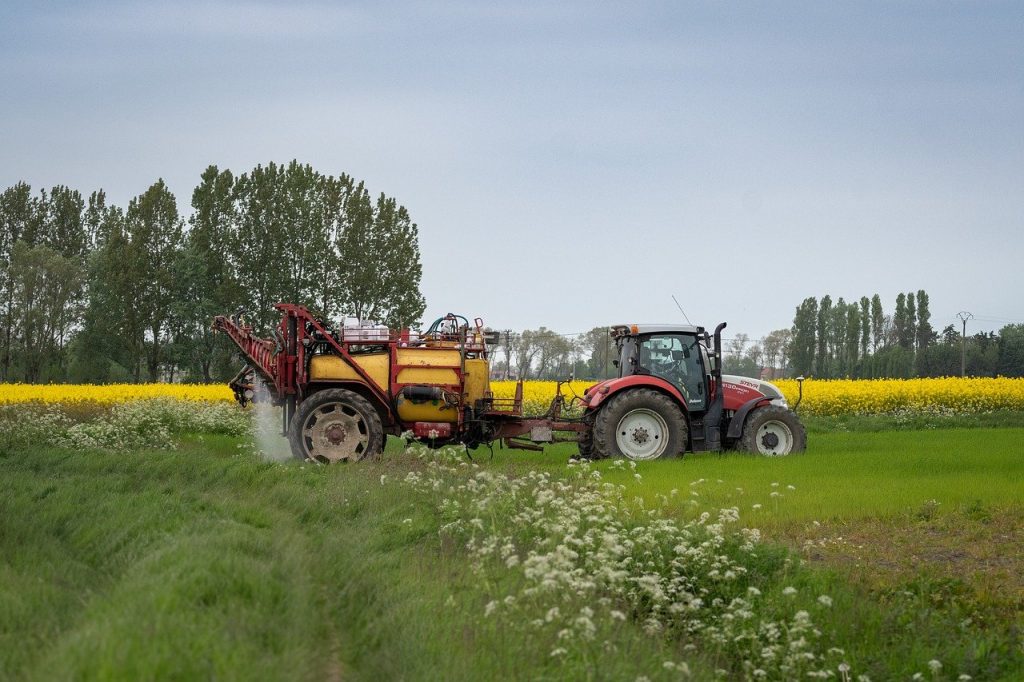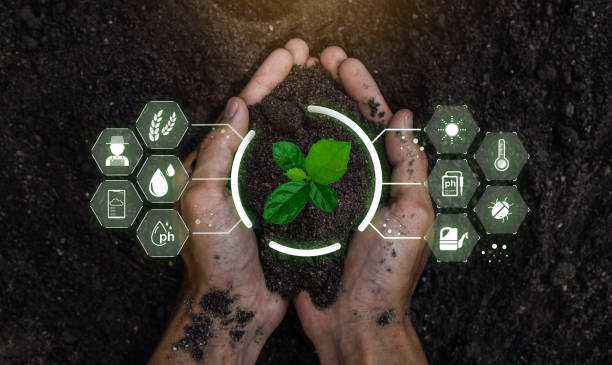Table of Contents
Artificial Intelligence (AI) is revolutionizing various sectors, and agriculture is no exception. With the global population expected to reach 9.7 billion by 2050, the demand for efficient and sustainable agricultural practices is more pressing than ever. AI technologies offer innovative solutions to enhance productivity, optimize resource use, and ensure environmental sustainability in agriculture. This article explores how AI is transforming agriculture, its benefits, challenges, and future prospects.

The Role of AI in Modern Agriculture
- Precision Farming: Precision farming involves using technology to monitor and manage crop and soil health more accurately. AI-powered tools and sensors collect data on soil conditions, weather patterns, and crop health. Machine learning algorithms analyze this data to provide actionable insights, such as the optimal amount of water, nutrients, and pesticides needed. For example, AI-driven drones and satellite imagery can assess crop health and detect diseases early, allowing farmers to apply targeted treatments and reduce the use of chemicals.
- Automated Machinery: AI is driving advancements in automated machinery, such as tractors, harvesters, and planters. Autonomous tractors equipped with AI systems can perform tasks such as plowing, planting, and harvesting with minimal human intervention. These machines use sensors and cameras to navigate fields, avoid obstacles, and adjust their operations based on real-time data. This automation not only increases efficiency but also reduces labor costs and improves accuracy.
- Crop Monitoring and Yield Prediction: AI technologies enable precise crop monitoring and yield prediction. By analyzing data from sensors, drones, and satellite imagery, AI algorithms can monitor crop growth, detect anomalies, and predict yields with high accuracy. This information helps farmers make informed decisions about planting, harvesting, and resource allocation. For example, predictive analytics can forecast crop yields based on historical data and current conditions, allowing farmers to plan better and manage supply chains more effectively.
- Pest and Disease Management: Managing pests and diseases is a critical aspect of agriculture, and AI offers innovative solutions to address these challenges. AI-powered image recognition systems can identify pests and diseases from images captured by drones or smartphones. Machine learning models analyze these images to detect and classify issues, enabling farmers to apply targeted treatments and reduce crop losses. AI can also predict pest outbreaks based on environmental conditions and historical data, allowing for proactive measures.
- Resource Optimization: Efficient use of resources such as water, fertilizers, and pesticides is crucial for sustainable agriculture. AI technologies optimize resource use by analyzing data on soil moisture, weather patterns, and crop needs. Smart irrigation systems, powered by AI, adjust watering schedules based on real-time data, reducing water waste and ensuring crops receive the appropriate amount of moisture. Similarly, AI-driven nutrient management systems recommend precise fertilizer applications to enhance crop growth while minimizing environmental impact.
- Supply Chain Management: AI improves supply chain management in agriculture by optimizing logistics, forecasting demand, and reducing waste. Machine learning algorithms analyze data on production, consumption, and market trends to predict demand and optimize distribution routes. This leads to more efficient transportation, reduced spoilage, and better alignment between supply and demand. AI can also assist in managing inventory and tracking the freshness of produce, ensuring high-quality products reach consumers.
Benefits of AI in Agriculture
- Increased Productivity: AI enhances productivity by automating labor-intensive tasks, optimizing resource use, and improving decision-making. Automated machinery and precision farming techniques allow for more efficient cultivation, reducing the need for manual labor and increasing overall output. AI-driven insights enable farmers to make data-driven decisions, leading to higher yields and better-quality crops.
- Sustainability: AI promotes sustainability in agriculture by minimizing the environmental impact of farming practices. Precision farming and resource optimization reduce the use of water, fertilizers, and pesticides, lowering the risk of pollution and conserving natural resources. AI technologies also help in monitoring and managing soil health, ensuring sustainable land use practices.
- Cost Savings: The adoption of AI technologies in agriculture can lead to significant cost savings. Automated machinery reduces labor costs, while precision farming minimizes the need for excessive inputs and reduces waste. AI-driven insights help farmers make more efficient use of resources, lowering operational costs and improving profitability.
- Enhanced Crop Quality: AI contributes to improved crop quality by providing precise monitoring and management of growing conditions. By detecting and addressing issues early, such as nutrient deficiencies or pest infestations, AI helps ensure that crops are healthy and meet quality standards. Enhanced crop quality benefits both farmers and consumers, leading to better market prices and healthier food options.
- Risk Management: AI helps in managing risks associated with agriculture by providing predictive analytics and early warnings. AI-powered systems can forecast weather events, pest outbreaks, and disease spread, allowing farmers to take preventive measures and mitigate potential losses. This proactive approach reduces the impact of adverse conditions and enhances overall resilience.

Challenges and Considerations
- Data Privacy and Security: The use of AI in agriculture involves the collection and analysis of large amounts of data, raising concerns about data privacy and security. Ensuring that data is protected from unauthorized access and misuse is essential for maintaining trust and compliance with regulations.
- Cost of Technology: The initial cost of implementing AI technologies can be high, particularly for small-scale farmers. Access to advanced machinery, sensors, and data analytics tools may be limited for those with limited financial resources. Efforts to make AI technologies more affordable and accessible are necessary for widespread adoption.
- Technical Expertise: Effective use of AI in agriculture requires technical expertise and training. Farmers need to understand how to operate AI-driven systems and interpret the data generated. Providing education and support to farmers is crucial for maximizing the benefits of AI technologies.
- Integration with Existing Systems: Integrating AI technologies with existing agricultural practices and systems can be challenging. Ensuring compatibility and seamless operation between new and traditional methods is important for achieving optimal results. Collaboration between technology providers and agricultural experts can facilitate smoother integration.
- Ethical and Social Implications: The adoption of AI in agriculture raises ethical and social considerations, such as the impact on labor markets and the potential for increased inequality. Addressing these implications requires thoughtful planning and policies to ensure that the benefits of AI are distributed equitably and that the technology is used responsibly.
Future Prospects
- Advancements in AI and Robotics: The future of AI in agriculture will likely see advancements in robotics and autonomous systems. Continued innovation in AI algorithms, sensor technology, and robotics will enhance the capabilities of automated machinery and precision farming tools, leading to even greater efficiencies and productivity.
- Integration with IoT: The integration of AI with the Internet of Things (IoT) will further enhance agricultural practices. IoT devices, such as smart sensors and connected equipment, will provide real-time data and insights, allowing for more precise and responsive management of agricultural operations.
- Sustainable Practices: AI will play a key role in promoting sustainable agricultural practices by optimizing resource use, reducing waste, and supporting conservation efforts. The development of AI-driven solutions for soil health, water management, and biodiversity will contribute to more sustainable and resilient farming systems.
- Global Collaboration: Global collaboration and knowledge sharing will drive the advancement of AI in agriculture. International partnerships, research initiatives, and technology exchange will support the development of innovative solutions and address global challenges related to food security and sustainability.

Conclusion
AI is transforming agriculture by enhancing productivity, optimizing resource use, and promoting sustainability. Through precision farming, automated machinery, and data-driven insights, AI offers significant benefits for farmers, consumers, and the environment. However, addressing challenges related to data privacy, cost, and technical expertise is crucial for maximizing the potential of AI technologies. As AI continues to evolve, its integration with emerging technologies and sustainable practices will shape the future of agriculture, contributing to a more efficient, resilient, and sustainable food system.